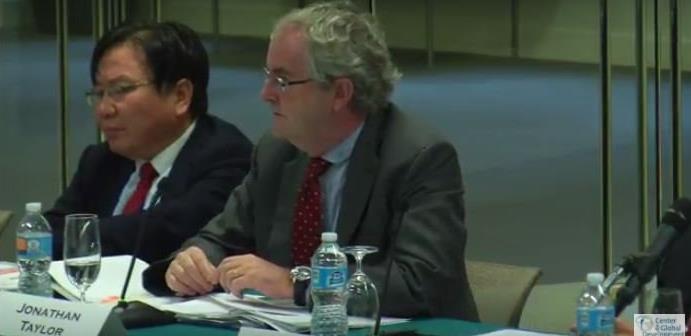 China's Belt and Road Initiative (BRI) aims to connect countries that account for 60 percent of the world's people and 30 percent of global GDP.
China's Belt and Road Initiative (BRI) aims to connect countries that account for 60 percent of the world's people and 30 percent of global GDP.
On Thursday, in the margins of the 2017 World Bank/IMF Annual Meetings in Washington DC, EIB Vice-President responsible for China and climate, Jonathan Taylor joined a group of representatives from the world of business, policy and finance to ask: how can we make sure the BRI produces real and lasting benefits for developing countries that are involved?
A key and critical element will be coordination among the multilateral development banks (MDBs) - in particular in identifying good quality bankable projects. Vice-President Taylor said "One of the roles of the MDBs is to catalyse private finance - and a way to complement that is to provide expertise & experience. “
He added that the EIB can also offer its experience on how to mobilise investments gained from the Investment Plan for Europe. Particularly in managing the European Fund for Strategic Investments (EFSI) and providing advice and technical help through the European Investment Advisory Hub on getting projects off the ground.
The event, “Stitching Together the New Silk Road”, was jointly hosted by the Centre for Global Development, Reinventing Bretton Woods Committee and the European Bank for Reconstruction and Development on the margins of the 2017 WBG/IMF Annual meetings. It homed in on key issues like how governments, international financial institutions and the private sector can work together to ensure the BRI is a sustainable success.
Since 1993 the EIB has supported projects in Asia worth some EUR 6.5 billion in sectors like urban transport, clean energy, water and enhancing power interconnections. The EIB Group, including the European Investment Fund is working alongside other EU institutions and the Chinese authorities including the Silk Road Fund on concrete ways to ensure effective cooperation and sustainable investment. One recent outcome of this cooperation was the Memorandum of Understanding signed in June at the EU-China summit in Brussels. Critical for the EIB Group is the opportunity presented by the BRI to support the climate goals outlined in the Paris Agreement as well as the Sustainable Development Goals.